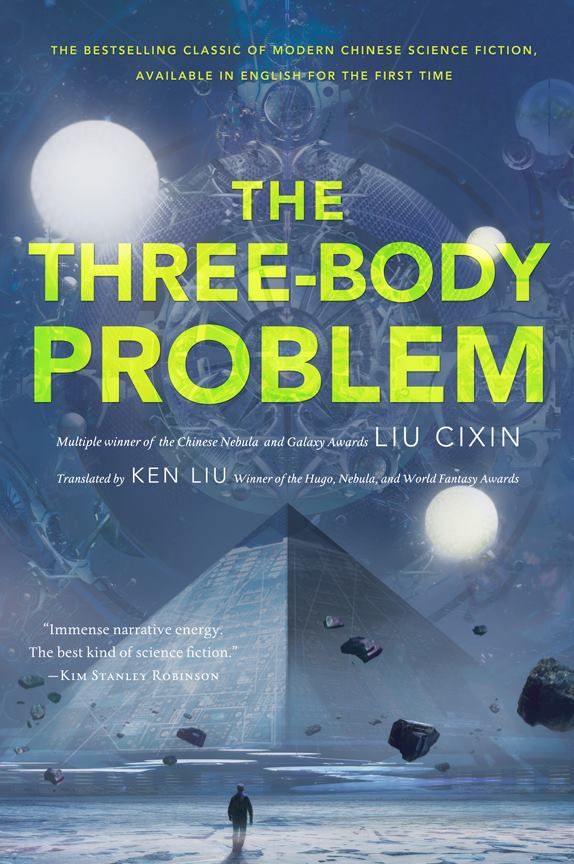Liu Cixin’s science fiction novel The Three Body Problem was a smash hit bestseller in China, and it has finally been translated into English by Ken Liu. It’s a mind-bending tale of politics, aliens and gaming — and it also contains the most awe-inspiring description of computers I’ve ever read.
What’s immediately fascinating about The Three Body Problem isn’t the crazy alien conspiracy plot, nor the insane representations of what it would be like to live on a planet with three suns. It’s actually the fact that Liu was able to write a raw, disturbing story about the Cultural Revolution — a period during the Cold War when thousands of scientists and professors were rounded up by the authorities and put into forced labour camps. The government of the People’s Republic of China often censors people who criticise the Communist Party, so the mere existence of Liu’s novel is evidence that even the government is willing to admit in retrospect that the Cultural Revolution was not a great idea.
The novel opens with one of the main characters, Ye Winjie, witnessing the public beating of her father, an astrophysicist who teaches his students about the big bang theory. This is during the height of the Cultural Revolution, and the Communist Party has dubbed the big bang “reactionary” because it suggests there was a time before existence. This radical idea could lead some people to imagine a spiritual or godlike power beyond our universe, thus undermining Marxist secularism. Even when the Red Guards, a student militia, whips him in the face with their belt buckles, Ye’s father will not back down. He is willing to die for physics.

This scene, with its horrific violence, sets the stage for a novel that’s as much about the horrors of anti-scientific politics as it is about aliens from other worlds. At a time in Chinese history when scientists have to hide what they are doing, Ye grows up and manages to find a job as a physicist at an secret facility the government has set up to send messages into outer space.
Meanwhile, in the present day, Ye is an old woman who befriends a young materials scientist named Wang Miao, who has noticed some seriously weird physical phenomena happening in the world around him. A mysterious force is causing him to see a countdown clock everywhere he looks, and he’s discovered a weird game online that’s about a civilisation of aliens who are trying to cope with life on a planet that shuttles between the gravitational fields of three suns.
At one point, Yang helps the civilisation in the game invent a computer — which they create entirely with human labour. Using hundreds of thousands of soldiers who act as bits (they hold a flag up or down to indicate 1 or 0), they create logic gates, a CPU, a bus (people racing on horses between different parts of the human motherboard), and more. When the bits “malfunction,” they are killed by their king. It’s a scene that captures how beautiful and intricate computing machines really are — while also reminding us that workers in the People’s Republic of China are dying to create the shiny gadgets that fuel our tech economy. And this is just one of many gorgeous descriptions of technology that Liu unfurls for us.
As the plot thickens, we discover that there’s a conspiracy that goes deeper than the secret facility where Ye once worked. And, of course, the game that Yang is playing is more than just a game. What’s terrific about this novel is that the conspiracies are never cliché — the alliances that people form are not at all what you expect. And there are no good guys or bad guys. There is only grey.
The Three-Body Problem is just the first novel in a trilogy, so don’t worry if you get hooked. The translations of the next two novels are coming soon!
